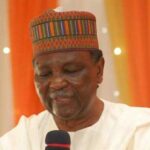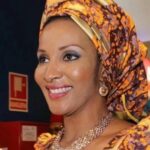
As the Commission of ECOWAS States commences what must be one of its most important summits ever the relevance and strength of the union is being challenged as never before by the circumstances that have arisen in The Gambia, one of its smallest member states. The organisation can count the nurturing of the democratic process over the last two decades as one of its most glorious achievements in forty years of existence. The current Chairman of its Authority of Heads of State, Liberia’s Ellen Johnson-Sirleaf, recently in Abuja, vowed to strengthen the union’s commitment to the interests of the ordinary people of the community.
This raised the hopes of democratic challengers throughout the region, especially as The Gambia’s authoritarian one-time military dictator Yahaya Jammeh had lost at the polls a few days earlier. It seemed as if a trend had been set since Jammeh had conceded almost immediately in a gracious television broadcast when the electoral commission announced that his opponent Adama Barrow had swept the polls. In that light, the outcome of elections in Ghana a few days later appeared to vindicate the commission’s renewed commitment to the principle of representative governance in the entire continent.
Ghana’s electoral exercise resulted in the first ever truncation of an incumbent’s tenure in that country’s history and thus reflected Nigeria’s experience last year. When former Foreign Minister Nana Akufo-Addo, who had contested for the ticket twice before, was eventually announced winner in Accra, replacing the incumbent John Dramani Mahama, Mahama’s welcoming speech of concession set a tone of decency and respect for the popular will that gave observers hope for the future of democratic processes throughout the community. And then news came from The Gambia that Yahaya Jammeh had reversed himself and was rejecting the previously announced results.
The news from The Gambia has raised the spectre of a return to the bad old days of impunity and disregard for the will of the people that the ECOWAS commission has set itself to overcome. As a consequence the leaders of the community have come out firmly in favour of the expressed will of The Gambian electorate with M. Marcel Alain de Souza of Benin Republic, the current President of the commission declaring that no option for acceptance of the reversal of the result exists, and warning that all means of enforcement open to the commission will be deployed if Jammeh insists on rejecting the results.
The Gambian imbroglio has been worsened by the conduct of the incumbent government in the days following the reversal of acceptance of the results by the defeated President. It ordered military forces to occupy the offices of the Electoral Commission and threatened the opposition forces with arrest and detention.
When Mrs. Johnson-Sirleaf made an attempt to fly into Banjul, the capital of The Gambia, to discuss the situation it ordered the airport closed against her landing. This forced the Heads of State of the Anglophone member countries to form a bloc and fly to the tiny country a few days later, to confront the recalcitrant Jammeh and tell him that the Commission as a whole will not accept the reversal of the results. This strategy in itself reflects one of the key dangers inherent in the consequences that can arise out of the confrontation between the people of the community and their leadership, since the division of the community along the lines of linguistic loyalty is a major fault line that it has tried to avoid provoking throughout its existence.
The commission’s last summit in its 41st year of existence will now be forced to consider the options open to it to call The Gambia’s government to order. Instead of ending the year on a celebratory note, it is faced with the task of correcting a situation in which a member country is threatened by conflict at home and unstable relations with the rest of the community.
The last time this happened was over two decades ago when the Liberian Civil War broke out and engulfed its neighbours, thus leading to the founding of ECOMOG. Most ECOWAS members are wary of any circumstance that might render a repeat of the military interventionist experience in the sub-region necessary.
It is clear, however, that if the commission is to defend the rights of the ordinary people against violations of their rights in their own nations, it cannot shy away from the need for intervention. While negotiation and dialogue are the best options, if the people’s will is being subverted by an intransigent leadership it might not only be necessary but also compulsory that the ECOWAS commission defends the rights of the ordinary citizens.
This will be a major talking point in this summit and it places the leadership of the entire community on the spot as they come together to discuss the way forward for the future.
Barrett wrote from Yenagoa, Bayelsa State
 Join Daily Trust WhatsApp Community For Quick Access To News and Happenings Around You.
Join Daily Trust WhatsApp Community For Quick Access To News and Happenings Around You.


